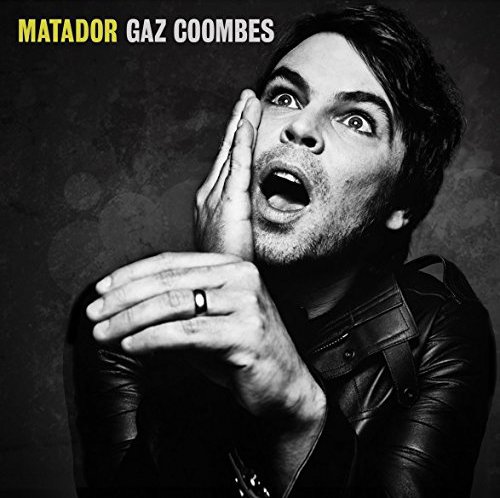
Gaz Coombes
Matador
Release Date: Jan 26, 2015
Genre(s): Pop/Rock
Record label: Hot Fruit
Music Critic Score
How the Music Critic Score works
Buy Matador from Amazon
Album Review: Matador by Gaz Coombes
Great, Based on 9 Critics
Based on rating 4.5
“It’s good to look around and see what else I might have missed. Inspirations change over the years.” These were the words of Gaz Coombes when he was interviewed on musicOMH around the time of release of Here Come The Bombs, his first solo album since the amicable split of Supergrass. Now that record is incredibly nearly three years old – and here is Coombes with its follow-up, full of fresh ideas and inspirations.
Based on rating 8/10
It's too easy to peg Matador as the maturation of the notorious teenage rocker Gaz Coombes, but it's also inaccurate. Coombes began flirting with introspection early on in Supergrass' career, eventually dedicating the entirety of 2005's Road to Rouen to reflection. Matador often plays a bit like a decade-delayed sequel to that 2005 minor masterwork, maintaining a similar sense of reserve that sometimes belies the adventure that lies underneath the shimmering surface.
Based on rating 4/5
Matador is Gaz Coombes’s second solo album since the demise of Supergrass. Those who admire the muscularity that propelled that band and the economy of Coombes’s songwriting will not be disappointed by songs such as To the Wire. They may, however, be shocked at its opening line: “I want to cut myself/ Cut myself down.” Similarly, Detroit’s krautrock patterns bubble along prettily, but “there is panic in my heart” is an unsettling refrain.
Based on rating 8/10
As daft as Britpop may have been, it's one of the few fleeting trends in rock music to tirelessly fight back for reappraisal. Key players from the era have all but moved on and yet it's impressionable millennials who keep trying to flog a dead horse. Gaz Coombes clearly drew a line when Supergrass released Road to Rouen back in 2005 – a slow burning gem of maturity that arguably came a little too 'late in the day' to win back a sizeable audience.
Based on rating 4/5
Even those too young to experience it fresh and first hand will forever picture Gaz Coombes as the guy with the sideburns, sat in the middle of the bed with his Supergrass band mates, in the video for ‘Alright’. Even now, twenty years on and firmly in his late thirties, it’s near impossible to ever imagine him any other way - but perhaps ‘Matador’ is the record where things finally change. The jaunty, energetic hints of Britpop cast aside, this is Gaz Coombes the adult man, writing adult songs, and they’re really rather great.
Based on rating 6.3/10
Any list of Britpop’s distinguished elder statesmen is unlikely to have Gaz Coombes—the mutton-chopped frontman for English oddballs Supergrass—in its top five. But over the course of six solid-to-great full-lengths, Supergrass were a welcome alternative to the witty austerity, sexual malaise, and idol worship that came to define the movement. Around the time of the 2004 singles collection Supergrass Is 10, it became clear that Supergrass were born to play Cult Favorite.
Based on rating 3/5
Gaz Coombes clearly works hard, playing nearly every instrument on this, his second solo album, recorded in a home studio. But that should be no surprise. In the early days of Supergrass, the band, its tours – even the T-shirts – had a feeling of graft behind them, as if the trio had been personally involved at every stage. On Matador, Coombes takes control again, using as a muse the effort and rewards of working solo, of coming out fighting.
Opinion: Excellent
Of all of their contemporaries, Supergrass were always the most instinctive and least contrived of bands. Still in their teens by the time of the release of their debut, I Should Coco, the trio brilliantly caught the joys and traumas and the ups and downs of their halcyon days with a wit and verve that was immediately recognisable to those going through the pains of growing up as well to those who'd already broken through that barrier. After all, they were young, they ran green and they kept their teeth nice and clean yet by the time they reached their penultimate album, Road To Rouen, the mood was palpably darker and worn before bowing out with Diamond Hoo Ha.
Opinion: Excellent
For all their giddiness and fun, Supergrass always had an innate credibility. Whilst they emerged in the hedonistic and narcissistic Britpop scene, they simply did their own thing and admirably focussed on the old fashioned values of songwriting, musicianship and totally got the importance of being a gang. They also knew when it was time to call it a day, leaving frontman Gaz Coombes to write by himself for the first time in a 20 year career.
'Matador'
is available now

